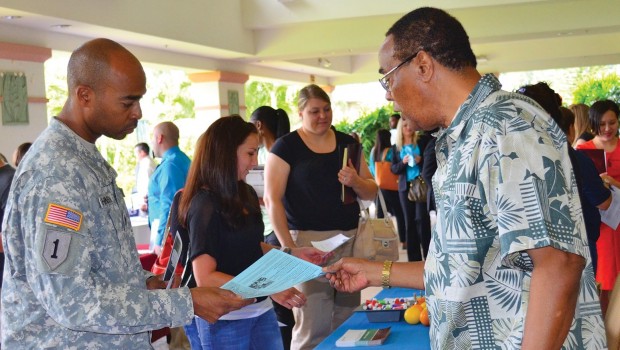How to Size Up Employers During Interviews
Post Views 17Summary: Here’s a quick lesson on how you to size up employers during a job interview.
Most of the popular literature on job hunting focuses on preparing your resume, researching employers, readying responses to tough questions and other tips that put you in the best light possible. Unfortunately, little room is allotted to evaluating your potential employer. Assessing a boss and company is as important as showing them what you can do, so it’s critical to recognize signs of trouble. The interview process should be a two-way street.
Sometimes, we’re so intent on having the right qualifications and experience, we lose sight whether the job is a good fit. We may not discover that something’s wrong until days, weeks or months after we’ve accepted the job, notified the recruiters and called a halt to our job search.
It’s difficult to determine within the span of an interview whether you’ve sized up a potential boss accurately. And it’s often harder to determine the corporate culture or whether you’ll get along with your new co-workers.
But there are signs that can tell you what the company will be like. Some are subtle and some are obvious. Most we can detect with common sense, but sometimes we’re so intent on landing the job, we ignore indicators.
I always try to get a feel for the company even before the interview begins. This opportunity can arise in the 10 to 15 minutes before it starts. I try to strike up a light conversation with the receptionist to get answers to such questions as “How do you like working here?” or “What’s the company like?”
Though I expect a positive response, it’s the level of enthusiasm that I pay attention to. If the response is “OK,” it could mean that he hates his job or likes the company but didn’t get a raise. The answer, though, could mean just that, his job is OK. But, if he gushes about how great the company is, how it takes care of its employees and how wonderful his colleagues are, it’s something else altogether.
I also regard it as a good sign when I’ve needed directions to reach an interview and am later asked, “Did you have any problems finding us?” It shows a level of personal concern on the part of the interviewer. Another preinterview question I appreciate is, “Would you like a cup of coffee or something to drink?” Again, it shows consideration and empathy. If nothing else, they show common courtesy. Questions like these also help establish a more-comfortable environment for the candidate.
A red flag goes up in my mind if I’m kept waiting 15 minutes or more without a reason or apology. Early in my career, I interviewed with the owner and manager of a small publishing company. He ran about 25 minutes late. As we walked into his office, he mumbled about how something had come up. Later, I learned his tardiness was a personality trait. He seemed always to be late for meetings and was hard to find when I needed his input.
If the interview seems stressful, it says something strong about the corporate culture. This technique involves the interviewer interrupting your answers, becoming argumentative or antagonistic and constantly pointing out your weaknesses.
Some years ago, I was asked to a second interview for a position that I thought would have been a good career move. It was a group interview, with a handful of interviewers. The first questions were low-key and relaxed, but the pace soon accelerated to the point to which their questions cut off my answers. After I gathered my wits and realized what was happening, I said, “I appreciate the opportunity, but if this interview reflects the company’s culture, then I’m not interested in this job.” I then thanked them, shook their hands and said goodbye. If that’s the face they want to show prospective employees, it’s all the better that I’m not trying to build my career there.
How to Size Up Employers During Interviews by Granted Contributor



 Tips for Mastering the Job Interview
Tips for Mastering the Job Interview  Dos and Don’ts for Body Language during an Interview
Dos and Don’ts for Body Language during an Interview  Top 5 Lessons of Mock Interviews: Don’t Make These Mistakes
Top 5 Lessons of Mock Interviews: Don’t Make These Mistakes  Tips to Make Your Next Phone Interview Go Smoothly
Tips to Make Your Next Phone Interview Go Smoothly  How Veterans Can Succeed at Career Fairs
How Veterans Can Succeed at Career Fairs  How to Negotiate Your Salary in a Job Interview
How to Negotiate Your Salary in a Job Interview  7 Things That Turn Off Potential Employers
7 Things That Turn Off Potential Employers  Investment Banking Interview Prep – How to Ace Your Investment Banking Interviews
Investment Banking Interview Prep – How to Ace Your Investment Banking Interviews